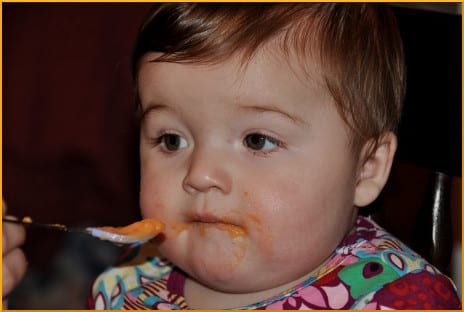 The majority of babies are born with a powerful drive—the desire to fit in, be accepted as part of the community, and recognized as a legitimate and valued member of it. They quickly learn that a sure way to get attention and approval is to imitate the actions of the adults and children around them.
The majority of babies are born with a powerful drive—the desire to fit in, be accepted as part of the community, and recognized as a legitimate and valued member of it. They quickly learn that a sure way to get attention and approval is to imitate the actions of the adults and children around them.
The ability to imitate affects one of their major human skills. Babies have to learn how to talk: to speak words understandably and connect their own and other people’s vocalizations with corresponding meanings. This requires an enormous ability to copy the behavior of the people who are raising them. Their survival depends on going into full monkey-see, monkey-do mode. They have no choice, no other way to do it.
Another way to gain acceptance and approval is to imitate the eating habits of the people in the environment, and babies have no choice in the matter. If the caregivers feed a baby junk, or even too much totally virtuous food, problems can arise. More subtly but equally important, the toddler’s little mind absorbs the fact that if people in the environment are obese, then obese is normal.
Raised in a World of Fatlogic
Fatlogic arises from the very normal and healthy attempt to make sense out of the world. If the people around you are fat, then fat is the thing to be. This is where fatlogic begins, even before an infant learns to speak. The problem is that, except for enduring total tyranny, there is no way to protect babies from overweight caregivers without demonizing overweight caregivers, which would mean demonizing a very large percentage of the population.
Yet, somehow, the normalization of obesity must be resisted. Is there a way to teach kids how wrong their parents are, without implying that their parents are wrong? Because a government that teaches kids how wrong their parents are will be sharply criticized. Kids grow up amidst ideological battles over these issues. To quote an earlier Childhood Obesity News post, “Inherited Fatlogic”:
By the time they are old enough to realize that they can take control of their own health, they don’t even know what health feels like. They are used to being unhealthy. What feels normal is what has always been. Fatigue and shortness of breath seem normal, and so do clothes that don’t fit right and all the thousand other annoyances and inconveniences of obesity.
The same post also discusses the normalization dilemma as it relates to ethnicity, and is only one of several posts on the general topic. Type “fatlogic” into the search box, and see!
Your responses and feedback are welcome!
Image by Aaron Vowels

 FAQs and Media Requests:
FAQs and Media Requests: 











